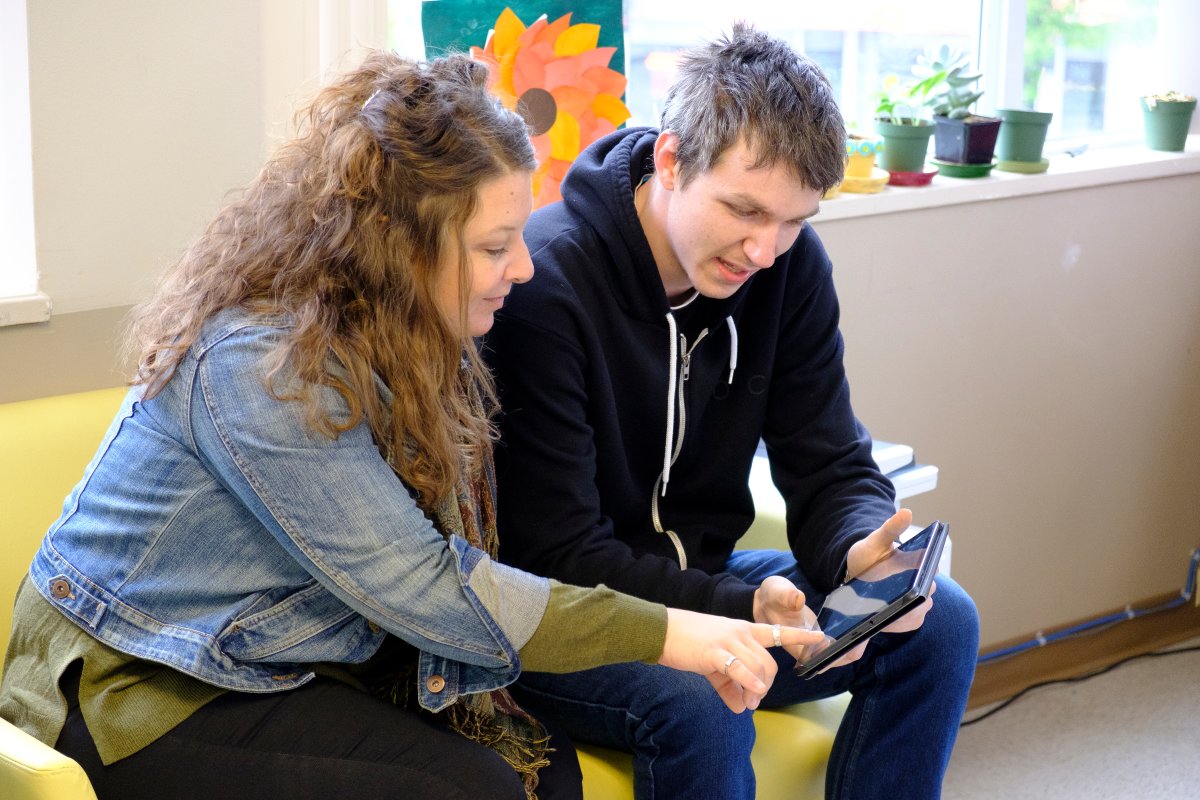Taylor Bundun has struggled with his mental health since he was a teenager.

He had a psychologist, and that was helpful, but it wasn’t until his mid-20s that he sought the support of a peer — someone his own age — who really understood some of his daily challenges.
“It’s less judgmental … it’s allowing people to express themselves,” says Bundun. “It’s a free environment.”
Bundun learned anxiety-relieving techniques, tips and tricks, and ways to strengthen interpersonal relationships.
Now he’s teaching others, leading the very same young adult peer support program he enrolled in at Coast Mental Health in Vancouver.
“We sort of allow people to have their own space and be who they want to be,” he says.
If someone wants to have a cigarette, he joins them. If they want to play Scrabble, he grabs the board. Peer support is about meeting people where they are, Bundun explains.

Coast Mental Health is marking World Mental Health Day on Oct. 10 by raising awareness of mental health issues and the importance of peer-led support programs.
According to Statistics Canada, one in five Canadians surveyed during the COVID-19 pandemic had at least one of three mental health issues: major depressive disorder, generalized anxiety disorder and post-traumatic stress disorder (PTSD).
The positive screening rates were three times higher for young adults between 18 and 24 years old.
“COVID has made everything harder, and not only harder for to deliver support and services, but it’s also been harder for people in recovery from their mental illness,” says Darrell Burnham, CEO of Coast Mental Health.
“It has denied so many people with mental illness access to important supports in their life.”
Demand for the organization’s service, he adds, skyrocketed during the pandemic, and for a while forced workers to cap the number of new clients they supported.

Increased prevalence, says Burnham, only adds to the importance of having open conversations about mental health and encouraging people to seek help when they need it.
“The work is ever more important now. We see so many young people who are just in distress, you know, they lost all social contacts and it’s been really, really challenging for folks.”
Peer support programs are especially important, he adds, as they serve a number of people who have been “burned by the system,” and haven’t always felt supported in hospitals and in psychiatric care.
“(Mental illness) is not with any cultural group, it’s not with any social group,” says Burnham.
“It’s immune to wealth, so mental illness strikes everyone in the world, so (it’s important to) acknowledge it and to recognize it, and put a name to it and say that it’s okay.”
The World Health Organization says World Mental Health Day is an opportunity to mobilize efforts in support of mental health, and encourage people to talk about their work and lived experience.
For a list of related online events, visit the World Health Organization’s website.




Comments